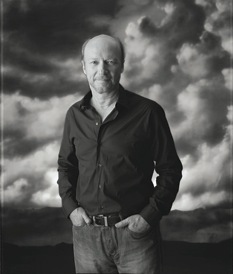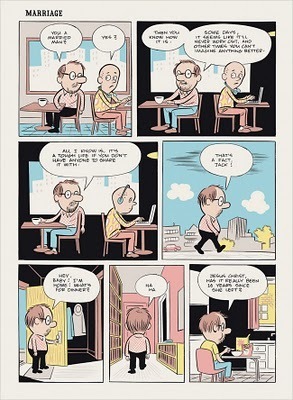Gabe Durham's Blog, page 21
February 14, 2011
Selected Parentheticals from Lawrence Wright's "The Apostate: Paul Haggis vs. the Church of Scientology"
In order of appearance.
(Travolta, through a lawyer, called this account "pure fabrication.")
(The church says that there are no fixed fees, adding, "Donations requested for 'courses' at Church of Scientology begin at $50 and could never possibly reach the amount suggested.)
(The church denies this.)
(Miscavige declined requests to speak to me, and Tommy Davis says that Miscavige did not attend the event.)
(Scientology denies that it obtained the information this way, and Davis produced an affidavit, signed by Scobee, in which she admits to having liasons…)
(Davis says that King's name never came up.)
(The church says that blow drills do not exist.)
(Davis says that Sea Org members enter R.P.F. by their own choosing and can leave at any time; the manual labor maintains church facilities and instills "pride of accomplishment.")
(Cruise's attorney says that Cruise doesn't recall meeting Marc.)
(The church calls Marc Headley dishonest, claiming that he kept seven hundred thousand dollars in profits after being authorized to sell Scientology camera equipment…)
(The church denies this characterization and "vigorously objects to the suggestion that Church funds inure to the private benefit of Mr. Miscavige.")
(The church denies this.)
(The church denies Brousseu's account.)
(Davis says he does not recall meeting Shannon, has never scrubbed a Dumpster, and has never had a need to borrow money.)








February 7, 2011
MAR & more
[image error]
I picked up my copies of the new Mid-American Review last weekend, which features my story, "Another Village," as well as stories by Tara Laskowski, Anthony R. Lusvardi, René Georg Vasicek, and Kevin Wilson. "Another Village" got its start as an attempt at getting into Fairy Tale Review's "Red Riding Hood" issue, but before I heard back from them, I sent it to MAR too. Glad I did.
A new Fun Camp short is going to be in an upcoming issue of DIAGRAM.
Pear Noir #5 is great. I especially like Sheila Heiti and MV Montgomery's stories.
A couple of things that came out last year are in the running for Best of the Web: 5 Shorts from Fun Camp in Monkeybicycle and Too Many Subjects in Bust Down the Door and Eat all the Chickens.
Jensen Beach's first book, For Out of the Heart Proceed, is coming out with Dark Sky!








January 3, 2011
Churchill Can't Lose
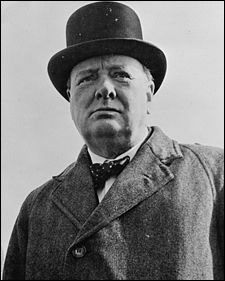
My piece, Wit of Winston, made Splitsider's list, The Year's Best Humor Writing.
Here's Rebecca O'Neal on the piece: "Was Winston Churchill a cad? If his characterization in this piece is to be believed, he wasn't the just orator we've been made to believe he was. Of course, this is all made up — and reminds me of my favorite SNL impersonations, the ones that have little to do with the people they lampoon. There's comedy in accuracy and exaggeration, but absurdity is so much more fun — The Onion's notoriously ridiculous take on Joe Biden for example."
I discovered Splitsider a few months ago when they recruited past Simpsons staff writers for Classic Simpsons Week.








December 29, 2010
Camp Chat at ASF
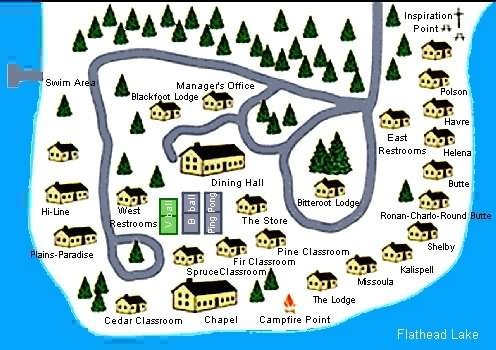
I talk camp & geography with American Short Fiction as part of their ASF Atlas series.
They published 3 Fun Camp shorts in August.








December 27, 2010
My "Best Inedibles of 2010″ List Has Moved
to the blog powerhouse, BIG OTHER, alongside other year-end lists by Andrew Borgstrom, Eugene Lim, Kevin Prufer, Cooper Renner, and David Shields.








December 21, 2010
Gather Round Children: The Best Inedibles Consumed in 2010
 In no order.
In no order.
Donald Antrim -The Verificationist - Antrim places a large cohort of psychotherapists in a grimy pancake house and then, 25 pages in, binds the arms of his narrator in the bear hug of a colleague and leaves him there, raised slightly off the ground in the man's embrace, for another 150 pages.
Donald Antrim – Elect Mr. Robinson for a Better World – When I introduced him at a reading earlier this year, I said, "The thing I most respond to in Antrim's writing is the precision and the consistency with which the prose lands on the continuum of humor and despair, the way his funniest moments are often his most terrifying." This was the novel I hadn't yet read, but this is the one about which the statement is most true. The comic horror of the ending still kind of shocks me to think about.
The National – High Violet – album of the year, easy
Jeannie Hoag – The New Age of Ferociousness – Funny, idiosyncratic chapbook. Many hits, like "This Used to Be my Bunny" and "Natalie Portman is Smarter Than I."
Kevin Sampsell – A Common Pornography – Memoir without interpretation, memory without judgment. What a challenge to withhold when writing about yourself. Pulled off beautifully.
Rachel B. Glaser – Pee on Water – Most of the stories in this book were re-reads for me, and one read usually doesn't do it. "Dream House" is perfect: Two teens can't be bothered to stop their heavy petting even as a skater kid maims himself right in front of them.
Kyle Minor – In the Devil's Territory – Three strong novellas steeped in Christian culture. "A Love Story" is a the best kind of novella, one that pack's a novel's worth of character, plot, and emotion into 40 or so pages.
Mike Young – We Are All Good if They Try Hard Enough – Makes writers who shrink from proper nouns look ridiculous.
Matthew Simmons – A Jello Horse – Tragic road trip in which the tangents become the point. I read it on a plane ride.
Buried – Claustrorific. The supposed appeal of Ryan Reynolds used to baffle me, but he sustains a whole movie alone in a coffin. (No escapes into back story. Just him in a coffin.)
[image error]
Nicholson Baker – The Anthologist – My favorite Baker. I can appreciate A Box of Matches (another 2010 read) but it doesn't come close to my love for Paul Chowder. I heard Baker wrote this book by setting up recorders in his house, then walked around talking to himself as Chowder. I hope that's true.
Patrik Ouředník – Europeana: A Brief History Of The Twentieth Century – Unlike any other book of history. If it's "fiction," that's only because it's narrated with such style and character, a voice invented just for the book.
Dennis Cooper – The Sluts – Web mystery that takes full advantage of how easy it is to lie on the internet. A fast read.
Jonathan Franzen – Freedom – Patty is the heart of this book. She's so complex, so fully-imagined. She stays with you. Walter and Richard too. The only times my attention wavered was when (1) the overtly political got in the way of character or (2) in the Joey sections, and even then, it's never bad. The first 200 or so pages are rock-solid.
Funny People – Best Judd Apatow, best Seth Rogan, maybe best Adam Sandler (or tied with Punch Drunk Love). It's a demanding movie–it's so long for a comedy and it risks sentimentality, but it pulls it off. Great use of cameos. Makes better use of Apatow's verbose dialogue than his other movies do because it's so committed to Sandler and Rogan's characters. See also: Raaaaaaaany!
The Office – Still good. Erin is welcome. Smart to make room for Darryl. Pam is meaner in a good way. Jim is more fallible. I admire the long game they're playing.
The White Stripes: Under Great White Northern Lights – High-concept performances in low-population Canadian towns, interspersed with Jack White interview truth bombs. A tour doc gold standard.
Sufjan Stevens – The Age of Adz – Great to see him stretching while retaining many tics and obsessions. "Vesuvius" is my favorite. Liz and I like the part halfway through the song where he starts addressing himself.
Kanye West – My BeautifulCrazySexyCool Fantasy – This thing keeps happening where I'm humming "Runaway" and then suddenly I'm humming Natalie Imbruglia's "Torn."
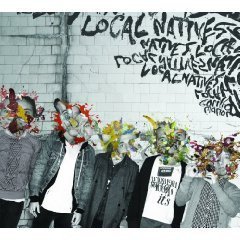 Local Natives – Gorilla Manor – Yeah, and two great Daytrotter sessions. There's something nice about seeing a band support a great first album. They play all their songs and when they've played them all, they go. It's after the second album that decisions have to be made.
Local Natives – Gorilla Manor – Yeah, and two great Daytrotter sessions. There's something nice about seeing a band support a great first album. They play all their songs and when they've played them all, they go. It's after the second album that decisions have to be made.
James Robison – The Illustrator
James Robison – Rumor and Other Stories
Vonnegut's Breakfast of Champions audiobook as read by Stanley Tucci – The reading redeems the book in an exciting way. Tucci's voice dignifies passages that on paper read as kinda flip.
Bill Callahan – Sometimes I Wish I Were an Eagle – Callahan clicks with me more than most other Weirdos of Folk, and I prefer the clean production and instrumentation here to the more-muddled Woke on a Whaleheart. My favorite track is the mournful "Eid Ma Clack Shaw."
The Arcade Fire – The Suburbs – Their most track-to-track album. Should've been shorter, but "We Used to Wait" and "Sprawl II" and "City with No Children" are among their best songs.

Josh Ritter – So Runs the World Away – Best live performance I've seen all year was supporting this album.
Girl Talk – All Day - More fun jogging soundtrack.
Big Boi – Sir Luscious Left Foot – "Shine Blockas" especially, but also "Daddy Fat Sacks," "Tangerine," "Shutterbugg," and "Back Up Plan." The vocal hooks on this album are overpraised, I think–some are pretty grating. The rapping's the thing, and it more than makes up for the rest.
Emily Toder – Brushes With – Simple declarative story-poems about encounters with shapes. Like The Little Prince untethered by logic. Begging for an illustrated addition.
Stephen Elliott – The Adderall Diaries – Great memoir. Elliott battles his dad's self-selective memory (a dad who writes anonymous scathing Amazon reviews of his books), has painful sex, and tries to figure out whether an acquaintance killed a bunch of people.
Sam Lipsyte – The Ask – Most comedians would do better to read aloud from this book than their own material. It's also Lipsyte's most crushing novel. Every time Milo makes himself vulnerable to someone, they make him regret it.
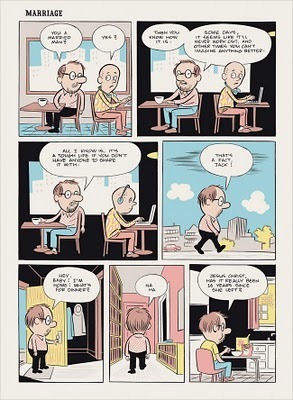 Daniel Clowes – Wilson – Graphic novel-in-strips in which a jobless depressive attends his dad's funeral, tracks down his ex-wife, meets his daughter, starts conversations with strangers wherever he goes. My introduction to Clowes (besides the forgettable movie Art School Confidential). I read it based on a rave review by Sam Lipsyte, whose characters have more than a little in common with Wilson.
Daniel Clowes – Wilson – Graphic novel-in-strips in which a jobless depressive attends his dad's funeral, tracks down his ex-wife, meets his daughter, starts conversations with strangers wherever he goes. My introduction to Clowes (besides the forgettable movie Art School Confidential). I read it based on a rave review by Sam Lipsyte, whose characters have more than a little in common with Wilson.
Daniel Clowes – David Boring – Meandering slacker noir that's hard to pin down. I like how about every woman in the book looks at David and goes, "You poor thing," for no reason but his depressive face.
Junot Diaz – The Brief Wondrous Life of Oscar Wao – I love how Diaz anticipates and caters to my ignorance of US foreign policy. Oscar the meganerd is the perfect anchor for this historical/supernatural kitchen sink novel.
Amy Hempel – At the Gates of the Animal Kingdom – Hempel's second collection is probably her most consistently excellent. Wow, she loves writing about dogs.
Inception - Left-brained movie of the year. I don't ask emotional payoff of Sudoku and I've learned not to ask it of Christopher Nolan, but I will keep watching his movies.
The Social Network – I like that boat race scene. Why don't more movies stop everything for a stylistic riff?
Chelsea Martin – Everything Was Fine Until Whatever – Reminds me of Kanye's album in that it attempts and succeeds at self-expression from so many different angles. By the end of the book, I feel I know the artist. (Whether I really do is irrelevant.)
John Pham – Sublife – Bought this at Davis-Kidd's store closing. Cats chase a dog. An old teacher lets students' loud noises stress him out. Lonely spacemen meet an alien.
William Walsh – Pathologies – Walsh's premise-based short shorts read fast and leave me with a buzz.
David Shields – The Thing About Life is One Day You'll Be Dead - Death-obsessed Shields dukes it out with his life-obsessed dad while narrating every body's development and decay. Reality Hunger may not hold much weight as a call to ALL WRITERS, but Shields' dexterous essay-making method really works for Shields.
 Bonnie Jo Campbell – American Salvage – Cut those two Y2K stories and you've got a near-perfect collection. My favorites: "Brian's Problem" (I got to see her read this one live at AWP), "Family Reunion," and "Winter Life."
Bonnie Jo Campbell – American Salvage – Cut those two Y2K stories and you've got a near-perfect collection. My favorites: "Brian's Problem" (I got to see her read this one live at AWP), "Family Reunion," and "Winter Life."
E.L. Doctorow – Sweet Land Stories – A cult, a runaway, a stone-cold murder. These stories deserve better than their ironic title. (Lives of the Poets is a bad title too.)
Ander Monson – Other Electricities – "Everything is good and ends badly." I stole this line and folded it into Fun Camp.
Shellie Zacharia – Now Playing – Unencumbered by ambition, these stories shoot for self-doubt, boredom, whimsy, and honesty.
Mary Robison – Why Did I Ever – I tried reading One D.O.A. after this, but magic of these impressionistic notes seems impossible to import to another novel. What a great character name, Money.
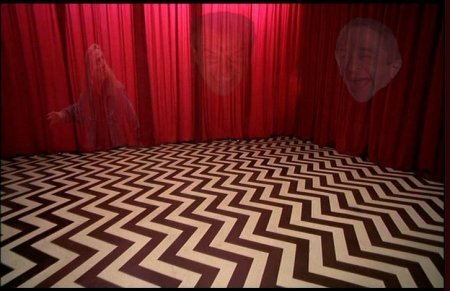
Twin Peaks – Some great nights had gathering with three guys to watch Twin Peaks. I don't know how I'd have made it through the valleys of Season 2 (and the prequel movie) without them.
We also watched Lost Highway, a movie I knew about in 7th grade only because it featured both NIN's "The Perfect Drug" and Smashing Pumpkins' "Eye" on the soundtrack.
Moon – Rockwell vs. Rockwell. Some of the best twists are the simplest: What if… stay with me now… what if there was a space movie where the computer seemed evil but wasn't.
Big Fan – Patton Oswald has one of those expressive comedic voices that always sounds like it could tip into rage or sullenness. In this movie, he does both.
Scott McCloud – Understanding Comics
Allison Bechdel – Fun Home – Bechdel's open gayness vs. her dad's closeted gayness, well-told. Man, these bad dad memoirs are really stacking up. And I liked them all. I didn't read graphic novels until about a year ago. Seems like it was probably my friend Brian's influence. I love how fast you can read them if you want to. It's like fast-forwarding through an expensive car chase scene. All that money! Wheeee!
Grace Paley – The Little Disturbances of Man - Her first book. Paley sprung out of the gates with her voice fully-formed.
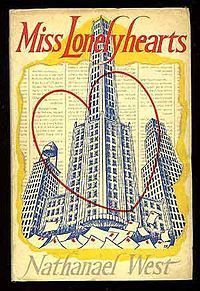 Christine Schutt – Florida – What stays with me is the feeling, an odd quiet. It's great how the childhood moves slowly and adulthood is both sped up and preoccupied with childhood.
Christine Schutt – Florida – What stays with me is the feeling, an odd quiet. It's great how the childhood moves slowly and adulthood is both sped up and preoccupied with childhood.
Vampire Weekend – Contra – So catchy. "Run" + "Cousins" + "Giving Up the Gun" is one of those too-pleasurable three-song sprints.
Nathaniel West – Miss Lonelyhearts – Crushing. I love the part where the narrator tells the story of his situation as if pitching the plot of a movie.








December 20, 2010
Keyhole in Dec/Jan issue of Nylon Guys
December 16, 2010
"Call My Name" by Aimee Bender
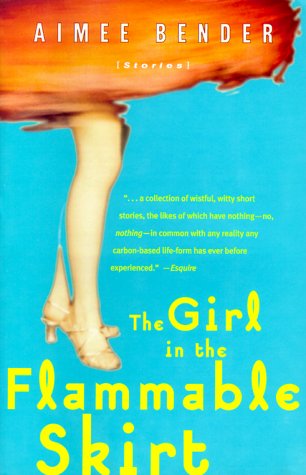
Well before the manic pixie dream girl meme was coined, Aimee Bender turned the trope on its head with, "Call My Name" (1998) the 2nd story in her first collection, The Girl in the Flammable Skirt.
In it, the heir to an adhesive wall hook empire rides the subway in one of her many sexy expensive dresses, auditioning men for one who'll leave her "breathless and weak, crumpled by the entrance of another person inside [her] soul." In other words, she's lonely and bored. After a close call, she sets her sights on "the shy man," who remains "the shy man" long after his shyness has been completely discredited. (The only shy thing about him is that he hasn't been paying attention to our dolled-up heroine.)
Their initial encounter sets up a pattern followed by the rest of the story: She pursues, he ignores. She is so thoroughly delighted with herself–her dress on the plastic seat sounds to her "like a holiday"–that his inattention baffles her. When the shy man gets off the subway, she follows him to a shoe store, follows him home. You can imagine how creepy this would be if the roles were reversed, but the story's hook comes more from the entitlement her wealth grants her than from her gender.
Any response from the man is taken as an encouragement. "Persistent dress lady," he says when she lets herself into his apartment, "you are one persistent cookie." Then comes my favorite line in the story: "I love being called cookie," she narrates. "I love it. I love it."
As she tries to seduce him, the first non-neutral thing the shy man says to her is, "I suppose I'd like to cut that dress right off you" (15). Here, the story threatens to take a darker turn, but the surprise is that it doesn't. He cuts her dress off, then goes and gets a glass of water. When she suggests he tie her up, he does it, but again, neutrally. He's detachedly amused by the encounter, then less so. They watch TV together. He offers to untie her, but she's not yet ready to go home.
One of the story's big clues comes 3/4 of the way in, after the shy man has tied her up: "Why does everybody but me look so fucking tired?" (18) she wonders. Even though she's shrewd about why she gets attention (When she's already working on how to relate this story to a shop girl later, who will "giggle, for I am, after all, the customer"), she hasn't yet figured out is that her presence alone can't brighten the days of people with work and worries.
The manic pixie dream girl is, as Nathan Rabin puts it, "that bubbly, shallow cinematic creature that exists solely in the fevered imaginations of sensitive writer-directors to teach broodingly soulful young men to embrace life and its infinite mysteries and adventures." This ideal has been with us long enough for some women to internalize it, and Bender's story is a perfect example of how it doesn't compute in practice. The narrator's shallow whimsy a privilege.
And yet our woman does, in her way, delight, and not just as we laugh at her. We can relate. We're hungry for attention. We want to be called cookie.
Urge to delight is never far from the surface in Bender's stories with their irresistible premises and spare evocative details that can read almost like jokes. She's very recommendable, very teachable, because so much of what she does, she does out in the open. And yet she rewards rereading and consideration. It's quite a gift. I like her a lot.








December 14, 2010
Hamilton & Burr Take a Long Look Back at Our Nation's Rich History + A Shocking Secret the History Books Don't Want You to Know (or if they want you to know, they also want you to forget)
Isn't this a nice forest? I come here to think.
[Unabridged version. Original version appears here.]
Gabe Durham: Gabe the Babe here coming at you live from KXOO Radio. With me in the studio, historical men Alexander Hamilton and Aaron Burr. Let me just start by saying wow.
Aaron Burr: Wow, indeed, Gabe.
Alexander Hamilton: Second that.
It's a big honor. My producer filled me in, said you're easily the biggest names we had on the show, which surprised me, though I've definitely heard of you. You know who we had last week? The kid from Two and Half Men . Who, no surprise, has got a mouth on him. It was a fun show, really a pleasure to dish with a big comic actor, get in his head and all.
Hamilton: [coughs]
So you're these founding fathers. You Were There. Declaration. Big War. Constitution. Emancipation. Woodstock. I mean—I know this sounds—whatever—but what was it like? What was the flavor of the era?
Burr: Whew, yeah, it was a whole different thing.
Hamilton: No cars, no rollerblading.
Burr: No low-frequency radio stations, that's for sure.
Hamiltons: Indians were still a big thing. Slaves.
Mmhm.
Burr: And this is all in our book, but there was definitely a palpable… Hey, what are you—?
Sorry, I'm listening. But I'm on both of your Wikipedias too, looking for material. They're big pages! You guys really are famous.
Hamilton: Yeah. Not gonna lie, I had a buddy start my page. But once it got going—I mean people add stuff to it all the time, people I don't even know.
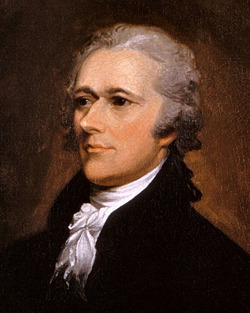
"I was never president." - Alexander Hamilton
So, Aaron, born in 1756, huh?
Burr: [pause] Yup.
And what a lot of people don't know is: You were Vice President under Jefferson.
Burr: Well I ran against Jefferson. We tied in electoral votes so it went to the House to decide. And back then Vice President goes to the runner-up, so.
That's what this says! But it's not like that any more, right?
Hamilton: Is John McCain VP?
I'm almost sure he isn't. So Alex… what a lot of people don't know… about you… is that… you're on the ten-dollar bill. But you were never President or Vice President, huh?
Hamilton: Well I might've been. If things had gone differently.
Burr: [laughs] I see where you're going with this.
Hamilton: I bet you do, asshole! [laughs] Ten paces my ass.
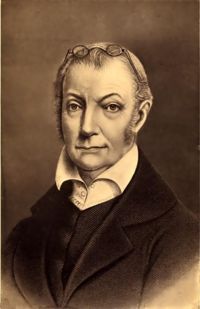
Hey ladies!
Hey guys—No inside jokes. It makes the audience feel not included. So getting back to, Alex, what you said. We all "might've been" president, though, right? But we're not. I mean I still could be. But not you guys. You guys are dead.
Burr: You need to check my Wikipedia and make sure?
No, I'm sure. So—for my next question… What's George Washington like?
Burr: Quiet, dignified.
Hamilton: Tall.
Burr: Kind of a jokester around Congress. One time, Hancock left the room and he had everybody—
Wait . Wait, wait, wait. Wait, what?
Hamilton: Found something good on your laptop there, did you?
This says—hold on. Aaron. This says you shot Alex.
Hamilton: What? Let me see that.
Look! Right there. July 11, 1804. New Jersey. Aaron challenged you to a duel… you accepted… even though your oldest son just died in a duel…
Hamilton: Burr, take a look at this! Isn't this baffling?
Burr: I'm… shocked.
Hamilton: Why would someone write these horrible things?
So, phew—I was going to say for a second!
Hamilton: Can't believe everything you read.
No, totally. But wow. Wouldn't that be crazy if it was true? It would kind of throw the whole Saintly Founding Fathers mythology into question. If the guys who put our nation together were fighting to the death over petty political BS? Or if Jefferson really was having illegitimate kids with his slave? Or if—
Hamilton: Absolutely! If this story were true, the whole nation would be discredited. It's not as if a vice president would ever shoot somebody in this sophisticated decade.
Funny you should say that. Actually, a few years ago Cheney was on a hunting trip with his—
Burr: Gabe. Gabe.
What?
Burr: He's messing with you.
About the Cheney thing?
Burr: About the duel. It happened. Hamilton fired at me and missed, and I got him in the abdomen.
Hamilton: Which hurt. And I died the next day.
No… I can't believe that. If it was true, I'd have heard about it.
Burr: Think hard. Did you learn about it in history class and then forget?
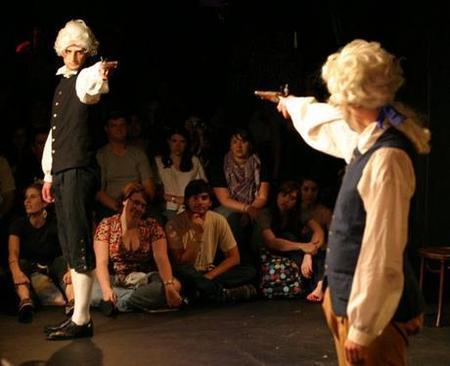
No, I would definitely remember this. A duel ? What is this, the Middle Ages?
Burr: A code duello duel. Gentlemanly. It has all these rules. It was already banned in most states. Kind of a Jersey thing. You'd have to be there to get it.
Couldn't you have just had it out on messageboards and then ignored each other at parties?
Hamilton: We did all that, too.
Burr: It was a serious thing. Hamilton would publicly say all this nasty stuff and it'd be in the paper. I lost sleep. I mean it was bad.
Hamilton: For me, it was more of a sport. Kick him around, watch him squirm.
Burr: Yeah, you were having a great time.
Hamilton: I was.
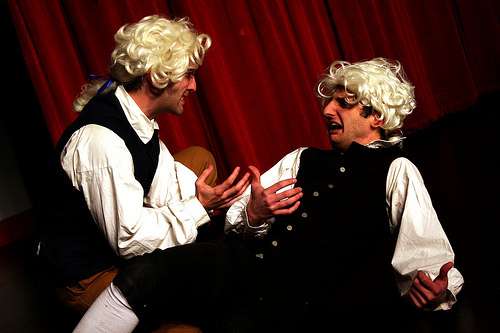
But now you seem to be fine with each other.
Hamilton: Well that's a good segue. Because one of the many things we assumed you knew going into this interview is that we're touring to promote a book we coauthored.
Burr: It's called I Hate You With All My Body. It starts on the day of the duel and then moves ahead from there. Hamilton's death, the rest of my life, my death, and then our eventual reconciliation and friendship.
Hamilton: Oprah called it a powerful tale of forgiveness just when our nation could use it.
Burr: Didn't get the official "O" sticker, though.
Hamilton: No. That've been nice.
Sure.
Hamilton: We were both jerks is basically the book's thesis.
Burr: But that's how it was back them. So much ego! You couldn't go five minutes at the Constitutional Convention without a guy taking off his glove and slapping someone.
Hamilton: So self-serious, all of us in our wigs.
Burr: And the thing is, now, I just can't even remember what I was so mad about. I mean I remember it, but I look at this guy sitting next to me and all I see is a friend.
Hamilton: Back atcha, buddy.
Aww. I wish our listening audience could see what I'm seeing right now. I seriously just x'ed out of Wikipedia and got on Amazon to buy their book. That's how moved I am right now.
Burr: I hope your audience does the same, Gabe. Although we actually get more of the money if you order it from-
Honestly? There's nobody listening. My wife, maybe, if we're lucky.
Hamilton: Kinda got that vibe.
Burr: Whatever. This is a good dry run for the Today Show tomorrow.
So which founding fathers were sleeping together?
Hamilton: When we're off the air, I'll tell you.
We'll wrap up tonight's show early, then. All you hypothetical listeners, please now enjoy side one of Green Day's Dookie . And thanks for listening, honey. I'll be home soon.








December 13, 2010
Burr & Hamilton Interview @ Mid-Continent Library

Either Burr or Hamilton--who can say for sure? Nobody.
I interviewed Aaron Burr and Alexander Hamilton for the Mid-Continent Library blog. Thanks to Dylan Little for setting it up. The gentlemen and I chatted for a good long spell, so tomorrow I'll post the unabridged version.
For the same series, Mike Young interviewed Ada Lovelace
and Adam Robinson interviewed Martin Luther.









